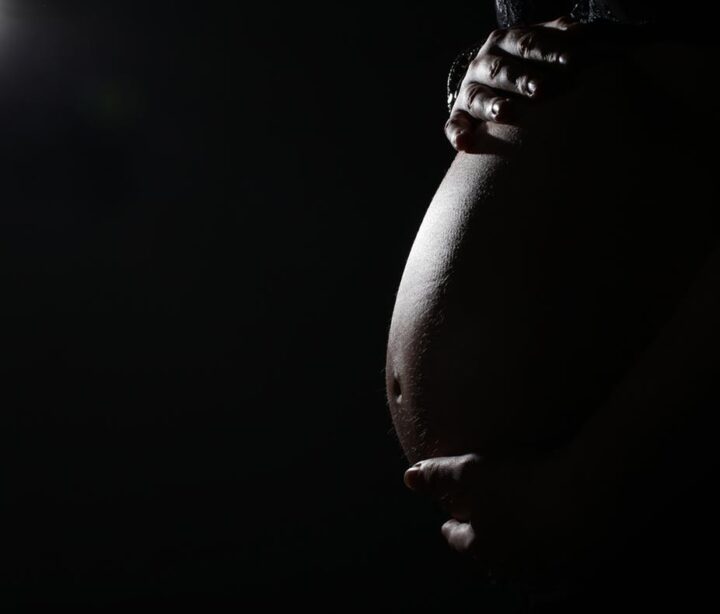Sonnie Ekwowusi, a human rights lawyer, says surrogacy in Nigeria is a criminal offence punishable by the law.
Ekwowusi made the claim on April 22 while speaking on the Morning Show, a programme on Arise TV.
The human rights lawyer said surrogacy is outlawed in Nigeria given that the surrogate is “womb renting” and giving out her child. He went on to say that surrogacy is the greatest violation of a woman’s dignity and identity.
“First of all, surrogacy is against natural law and is against Nigeria law. A lot of people don’t know that surrogacy is illegal in Nigeria,” he said.
Advertisement
“Surrogacy simply means mixing the eggs and sperm and putting it in the womb of a woman. It is actually called womb renting, and the woman carries the baby for nine months, delivers the baby, and gives it to the person who wants the baby.
“The same woman goes about and does it for another woman, at the end of the day, the woman becomes an object. That is why it is said that surrogacy is the greatest violation of human dignity, identity of a woman.”
Ekwowusi quoted section 30, sub-section (1) of the Child Rights Act to support his claim.
Advertisement
Section 3 of the same act stipulates a punishment of 10 years imprisonment for violators of subsection (1).
“No person shall buy, sell, let on hire, depose or obtain possession of or otherwise deal in a child,” the section reads.
“Person who contravenes the provision of subsection (1) of this section commits an offence and is liable on conviction to imprisonment for a term of 10 years.”
He also cited section 50 of the National Health Act which prohibits assisted reproductive technology.
Advertisement
“A person shall not manipulate any genetic material, including genetic material of human gametes, zygotes or embryos; or engage in any activity including nuclear transfer or embryo splitting for the purpose of the cloning of human being; import or export human zygotes or embryos,” the section reads.
“A person who contravenes or fails to comply with the provision of this section commits an offence and is liable on conviction to imprisonment for a minimum of five years with no option of a fine.”
Surrogacy is Against National Law and Illegal in Nigeria – Ekwowusi
Surrogacy is simply womb renting, it is the greatest violation of a woman's dignity and section 30 of the Child Rights Act criminalizes surrogacy
AdvertisementSonnie Ekwowusi, Human Rights Lawyer pic.twitter.com/5qI0V6RKXm
— ARISE NEWS (@ARISEtv) April 22, 2024
Advertisement
Following his remarks, several Nigerians have expressed different opinions on what the law says about surrogacy in the country.
Advertisement
Section 30 of the Child Rights Act prohibits buying, selling or hiring of children. It doesn’t in any way criminalise surrogacy. I am not aware of any Nigerian law on surrogacy. It is one of those grey areas that is yet to be addressed by the law.
— #TrustInTheLord(Proverbs 3:5) (@DieuEmeka) April 22, 2024
Advertisement
Exactly. My LLB thesis is on comprehensive review of the Child Rights Act. There is no provision in that law that in any way criminalises surrogacy.
— #TrustInTheLord(Proverbs 3:5) (@DieuEmeka) April 22, 2024
WHAT IS SURROGACY?
Surrogacy is the process where a woman (surrogate) carries and delivers a child for a couple or an individual.
The surrogate mother is impregnated through in vitro fertilisation (IVF) — a medical procedure in which a woman’s eggs are removed from her ovary and combined with sperm to form embryos.
Surrogacy is either gestational or traditional. It is gestational when an embryo is created using the sperm from the future father (or sperm donor) and the egg of the biological mother (or egg donor) which is then implanted into the uterus of the surrogate, who carries the baby to full term.
Traditional surrogacy is achieved using the sperm of the intended father to fertilise the surrogate’s egg. The surrogate mother then carries the pregnancy to full term, delivering the baby for the parents.
Surrogacy can sometimes be commercial or altruistic. It is commercial when the surrogate is paid for carrying the pregnancy and delivering the baby while altruistic surrogacy is usually when a surrogate does not receive any financial compensation for the pregnancy.
For surrogacy to take place, a legal contract is required just like in an adoption process where legal fees are paid to the federal government.
WHAT DOES NIGERIAN LAW SAY ABOUT SURROGACY?
The complex nature of surrogacy has made it very difficult for countries to take a stance on it, however, in Nigeria, surrogacy has no legal framework regulating it.
In 2016, a bill to regulate assisted reproductive technology (ART) was presented to the national assembly but has not been passed into law. Lagos, however, launched a guideline for assisted reproductive technology (ART), the closest law to surrogacy.
ART is a fertility treatment that includes artificial insemination which involves surgically removing eggs from a woman’s ovaries and combining them with sperm in the laboratory. The eggs are then returned to the woman’s body or donated to another woman.
While there is no accurate data on the prevalence of surrogacy in Nigeria, evidence shows that surrogacy occurs in the country.
This leaves us with the question of whether an absence of a legal framework constitutes illegality.
VERIFYING THE CLAIM
To dissect Ekwowusi’s claim and ascertain whether surrogacy is prohibited in Nigeria, TheCable spoke with several legal practitioners for their take on the subject.
Henry Akanwa, a lawyer, said surrogacy can be classified as a crime when the surrogate is paid for having the child, adding that it is then seen as “child trafficking”.
“Surrogacy is not a crime unless you are paying the mother to have the child and buy the child afterwards. That can be classified as child trafficking,” Akanwa said.
“When someone has a child out of wedlock and intends to give the child away, a couple can decide to want to adopt the child and have to go through the adoption process stipulated by law or by practice and procedural rules guiding adoption. To relate this to surrogacy, that mother that decides to give away the child can be seen as a surrogate because she had a child and decides to give it away.”
Olu Daramola, a senior advocate of Nigeria (SAN), said surrogacy is not illegal given that there is no legal framework for it.
He said only that which is outrightly prohibited by the law can be illegal.
“There is no law on surrogacy in Nigeria. There is a difference between making something outrightly illegal and not making provision for it. For now, there is no law that says you can or cannot do it,” Daramola told TheCable.
“That one is a different provision (referring to the child trafficking law), if you look at the Child’s Rights Act, it is meant to protect children who have been born. Surrogacy is not adoption, but someone who cannot conceive has someone give birth for them.”
Daramola said to end the constant confusion around surrogacy, the government must wade in.
“I think the way forward is for surrogacy to be recognised and checked as the law is made for man and not the other way round. The law must take note of technological advancement. What constitutes a crime is what is outrightly prohibited by law,” he added.
Also weighing in, Olutumbi Babayomi, a family lawyer, said one cannot be charged to court for flouting an “inexistent law”.
“As of today, we do not have any legal provision that covers surrogacy. If anyone is caught, he/she cannot be charged for flouting an inexistent law,” Babayomi said.
“One of the problems we have in Nigeria is not about making laws but enforcing them. For something to be termed illegal, that means it is a criminal offence, but we do not have any law criminalising surrogacy.”
Babayomi added that legalising surrogacy in Nigeria would be rather too premature as there are so many complications around it.
He said if a surrogacy dispute makes it to court, it would not be treated as surrogacy but as child trafficking.
“If it is charged as a criminal offence, it will not be charged as surrogacy but as a crime under the Child Rights Act. So such case will go to court as trafficking or abuse of children,” he added.
“Because the surrogate is paid for the service of childbearing, it falls within the legal framework that illegalises any exchange of children. For the many complications around surrogacy, I think it is a little too premature to legalise surrogacy.”
Awa Kalu, a senior advocate of Nigerian (SAN), also affirmed that there is a legal vacuum regarding the rights and responsibilities of the parties involved in surrogacy arrangements.
He said both the Child Rights Act and the National Health Act — as quoted by Ekwowusi — did not prohibit surrogacy.
“While the National Health Act prohibits the manipulation of embryos, it is crucial to distinguish between manipulation for unethical purposes and assisted reproduction techniques used in surrogacy. The act’s provision likely targets activities such as genetic engineering rather than the legitimate practice of surrogacy,” Kalu said.
“The underlying purpose for the enactment of the National Health Act in Nigeria is to provide a legal framework for the regulation and development of the health sector in the country. The act aims to improve the quality, accessibility, and affordability of healthcare services for all Nigerians and upon careful study and overview, does not in any way, prohibit surrogacy.
“Similarly, the Child Rights Act prohibits the buying and selling of children, but the definition of ‘child’ within the act which defines a child as a ‘person’ under 18 years, does not encompass embryos. According to the Criminal Code, a child is typically understood as one who has been born and proceeded from the womb of the mother. Hence, the act’s prohibition may not extend to embryos used in surrogacy arrangements.”
VERDICT
There is no legal framework for surrogacy in Nigeria. The National Health Act and the Child Health Act do not prohibit surrogacy in Nigeria.






